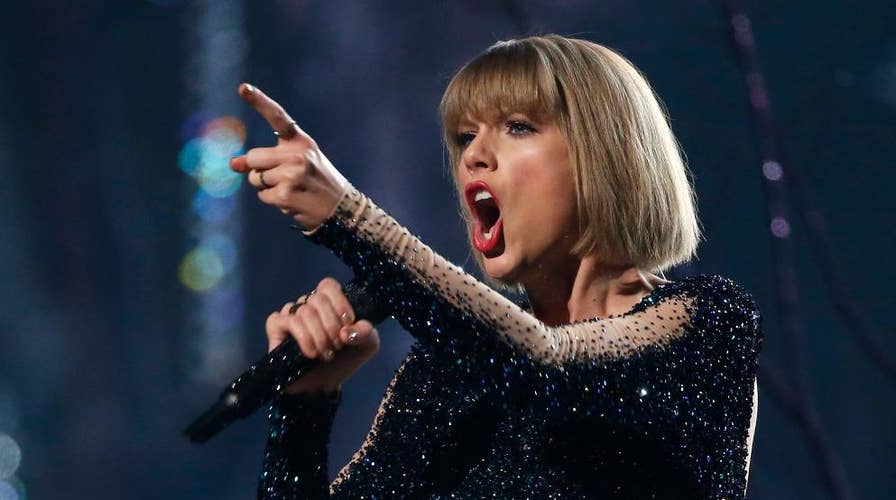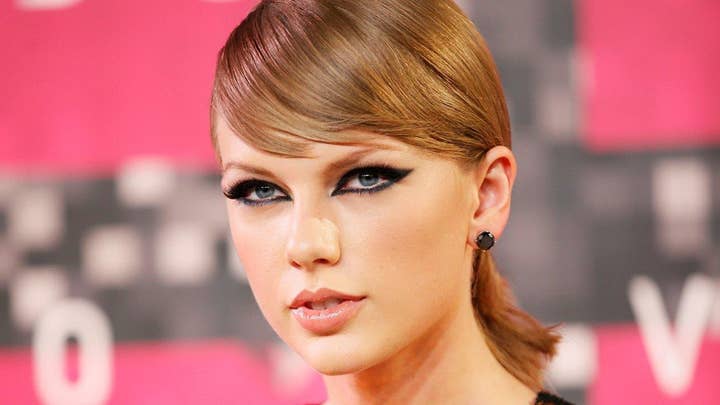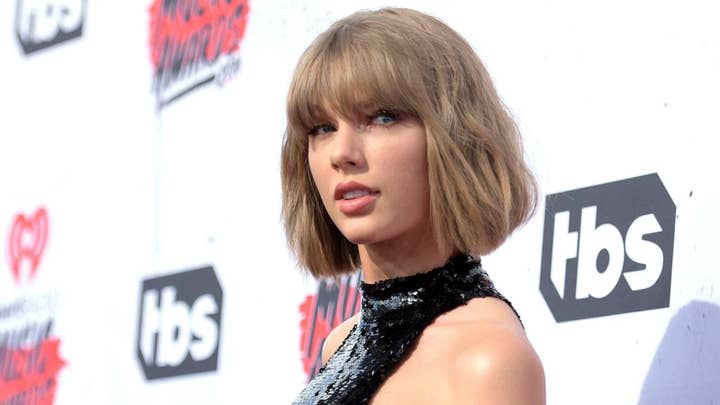ACLU, Taylor Swift feud over article linking star to white supremacists
Since 2013, white supremacists lauded Taylor Swift as a symbol for their movement. Now after a blogger wrote an article linking the singer to their cause, Swift threatened legal action. The ACLU has come to the the author's defense citing free speech.
Taylor Swift’s irresistible tunes have earned her a cult-like following of millions across the globe. They also seem to have attracted a squad of stalking suspects and angry Internet loners.
"You wouldn't believe how many people are obsessed with Taylor Swift," Nashville police Chief Steve Anderson said this week following the arrest of Travis Reinking, 29, who allegedly gunned down four people at a Waffle House restaurant in Tennessee early Sunday.
The suspected shooter was reportedly obsessed with Swift, once accusing the internationally famous pop star of stalking him, hacking into his phone and climbing a building to chase him.

Travis Reinking, 29, was captured Monday following a frantic manhunt. (AP)
Reinking's claims are just one example of the dark side of the craze surrounding the pop star. This month alone, Swift had to deal with at least three alleged stalkers. Last Friday, one suspect allegedly broke into her townhouse in New York City, took a shower and napped in her bed.
TAYLOR SWIFT DEALS WITH THIRD ALLEGED STALKER THIS MONTH, AUTHORITIES SAY
On April 14, another man was arrested on suspicion of stalking Swift outside her house in Los Angeles. Authorities said the suspect was wearing a mask and was equipped with a knife, rope, ammunition, more masks and gloves inside the car.
A homeless man was also sentenced earlier this month to three days in jail and misdemeanor after attempting to enter the same L.A. property by scaling a wall and ignoring the security guards’ warnings to leave.
The fixation with Swift has also attracted the fascination of white supremacists, mostly residing on the Internet, who've crowned the pop star as “Aryan goddess.”
“Taylor Swift is a pure Aryan goddess, like something out of classical Greek poetry,” self-proclaimed neo-Nazi Andrew Langlin, who runs one of the largest hate sites on the Internet, told Vice’s Broadly. “Athena reborn. That’s the most important thing.”
White supremacists insist the pop singer, who has never said anything explicitly supportive of white nationalists, is a covert supporter of their ideology. As evidence, they point out to her reluctance to join the choir of other industry stars who weigh in on politics and express support for liberal causes.
(Swift has since made a public statement in support of the March for Our Lives movement for gun control, saying in an Instagram post that she also made a donation to the cause.)
They also note that Swift’s songs and music videos often feature supportive undertones of their hateful ideology, with more liberal-inclined publications voicing their concern for alleged racism in her videos.
“Taylor Swift Is Dreaming Of A Very White Africa,” an NPR article’s headline reads. Pacific Standard magazine, meanwhile, slammed the music video of “Wildest Dreams,” saying it openly flirts with white supremacy.
“It’s nostalgic for a time when you could be nostalgic for white supremacy, when having a wedding at a former slave plantation raised no eyebrows,” the 2015 article reads. “As in ‘Shake It Off,’ Swift’s previous flirtation with white supremacy, the white fantasy that Swift is selling is the idea that you can play around with racism but not get your hands dirtied by it.”
Swift has since tried to shake off the unwanted white supremacists attention, suing a virtually unknown blog in 2017 for jokingly suggesting Swift was a white supremacist. The American Civil Liberties Union (ACLU) criticized the effort, saying, “This is a completely unsupported attempt to suppress constitutionally protected speech.”
But while white supremacists’ love for Swift seems to have withered in recent months, there appears to be no end to suspected stalkers.
















































